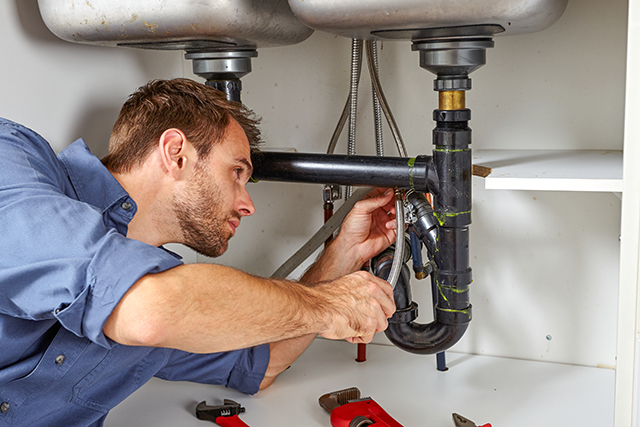Key Takeaways
- Inspect your plumbing system thoroughly before summer to prevent leaks and water damage.
- Common summer plumbing issues include leaky faucets, water heater malfunctions, and clogged drains.
- Regular maintenance of sprinkler systems and gutters can save water and reduce costs.
- Conserving water through efficient practices helps cut down utility bills.
- Contact professional plumbing services to handle any complex issues and ensure a hassle-free summer.
Best Plumbing Services for Hot Summers | Top Tips & Solutions
Summer is a time for fun and relaxation, but it can also bring unique challenges to your home’s plumbing system. High temperatures, increased water usage, and occasional thunderstorms can strain your pipes and fixtures. Therefore, it’s crucial to prepare your home to avoid unexpected plumbing problems. In this article, I’ll guide you through essential tips and solutions to ensure your plumbing is in top shape for the summer.
Prepare Your Home for Summer’s Plumbing Challenges
Before summer hits, it’s important to take proactive steps to prepare your plumbing system. This preparation can save you from costly repairs and water damage. Let’s dive into the key areas you need to focus on.
Inspect Your Plumbing System
Start by conducting a thorough inspection of your entire plumbing system. Look for any signs of leaks, corrosion, or damage in your pipes, faucets, and fixtures. Pay special attention to areas that may have been affected by winter’s freezing temperatures.
- Check under sinks and around toilets for any water stains or dampness.
- Inspect outdoor faucets and hoses for cracks or leaks.
- Examine your water heater for any signs of rust or corrosion.
By catching these issues early, you can prevent them from escalating into major problems during the summer.
Assess Outside Water Sources
Your outdoor water sources, such as sprinklers and garden hoses, play a significant role in maintaining your lawn and garden during the summer. However, they can also be a source of water wastage if not properly maintained.
Check your sprinkler system for any leaks or broken sprinkler heads. A malfunctioning sprinkler can waste a significant amount of water and increase your utility bills. Additionally, inspect your garden hoses for cracks and replace them if necessary.
Inspect Few Key Areas
Besides your main plumbing system, there are a few key areas that require special attention during summer:
- Sump Pump: Ensure your sump pump is working correctly, especially if your area is prone to summer thunderstorms. A functioning sump pump can prevent basement flooding.
- Gutters: Clear your gutters of any debris to ensure proper drainage during summer rains. Clogged gutters can lead to water damage and foundation issues.
- Water Pressure: Test your water pressure to ensure it’s within the recommended range. High water pressure can damage your pipes and fixtures over time.
Common Summer Plumbing Problems and Their Solutions
Summer brings specific plumbing challenges that homeowners need to be aware of. Understanding these issues and knowing how to address them can help you maintain a smoothly running plumbing system.
Leaky Faucets and Pipes
Leaky faucets and pipes are common problems that can worsen during the summer due to increased water usage. A small leak can waste a significant amount of water and lead to higher utility bills.
To fix a leaky faucet, start by turning off the water supply to the affected area. Disassemble the faucet and replace any worn-out washers or seals. If you’re dealing with a leaky pipe, it’s best to call a professional plumber to assess and repair the issue.
Water Heater Malfunctions
Your water heater works harder during the summer to provide hot water for showers, laundry, and dishwashing. Over time, sediment can build up in the tank, reducing its efficiency and causing malfunctions.
To prevent this, flush your water heater regularly to remove any sediment buildup. If you notice any unusual noises or a lack of hot water, contact a professional plumber to inspect and repair your water heater.
Clogged Drains and Sewers
Clogged drains and sewers are another common summer plumbing issue. Increased outdoor activities and gatherings can lead to more food scraps, grease, and debris going down your drains.
To prevent clogs, avoid pouring grease or oil down the drain and use drain screens to catch food particles. If you experience a stubborn clog, try using a plunger or a drain snake. For severe blockages, it’s best to call a professional plumber to clear the obstruction.
Assess Outside Water Sources
Your outdoor water sources, such as sprinklers and garden hoses, play a significant role in maintaining your lawn and garden during the summer. However, they can also be a source of water wastage if not properly maintained.
Check your sprinkler system for any leaks or broken sprinkler heads. A malfunctioning sprinkler can waste a significant amount of water and increase your utility bills. Additionally, inspect your garden hoses for cracks and replace them if necessary.
Inspect Few Key Areas
Besides your main plumbing system, there are a few key areas that require special attention during summer:
- Sump Pump: Ensure your sump pump is working correctly, especially if your area is prone to summer thunderstorms. A functioning sump pump can prevent basement flooding.
- Gutters: Clear your gutters of any debris to ensure proper drainage during summer rains. Clogged gutters can lead to water damage and foundation issues.
- Water Pressure: Test your water pressure to ensure it’s within the recommended range. High water pressure can damage your pipes and fixtures over time.
Common Summer Plumbing Problems and Their Solutions
Summer brings specific plumbing challenges that homeowners need to be aware of. Understanding these issues and knowing how to address them can help you maintain a smoothly running plumbing system.
Leaky Faucets and Pipes
Leaky faucets and pipes are common problems that can worsen during the summer due to increased water usage. A small leak can waste a significant amount of water and lead to higher utility bills.
To fix a leaky faucet, start by turning off the water supply to the affected area. Disassemble the faucet and replace any worn-out washers or seals. If you’re dealing with a leaky pipe, it’s best to call a professional plumber to assess and repair the issue.
Water Heater Malfunctions
Your water heater works harder during the summer to provide hot water for showers, laundry, and dishwashing. Over time, sediment can build up in the tank, reducing its efficiency and causing malfunctions.
To prevent this, flush your water heater regularly to remove any sediment buildup. If you notice any unusual noises or a lack of hot water, contact a professional plumber to inspect and repair your water heater.
Clogged Drains and Sewers
Clogged drains and sewers are another common summer plumbing issue. Increased outdoor activities and gatherings can lead to more food scraps, grease, and debris going down your drains.
To prevent clogs, avoid pouring grease or oil down the drain and use drain screens to catch food particles. If you experience a stubborn clog, try using a plunger or a drain snake. For severe blockages, it’s best to call a professional plumber to clear the obstruction.
Essential Preventive Maintenance Actions
- Regularly check for leaks in your plumbing system.
- Monitor and adjust your water pressure as needed.
- Maintain and inspect your sprinkler systems.
Preventive maintenance is key to avoiding costly plumbing issues during the summer. By staying proactive, you can ensure your plumbing system operates efficiently and effectively. For more tips, check out these summer plumbing tips.
Check for Leaks
Regularly checking for leaks is one of the most important preventive maintenance actions you can take. Even a small leak can lead to significant water wastage and potential damage to your home.
Inspect all visible pipes, faucets, and fixtures for any signs of leaks. Pay special attention to areas under sinks and around toilets. If you notice any water stains or dampness, address the issue immediately to prevent further damage.
Monitor Water Pressure
Maintaining the correct water pressure is crucial for the longevity of your plumbing system. High water pressure can cause stress on your pipes and fixtures, leading to leaks and other issues.
Use a water pressure gauge to test your home’s water pressure. The ideal range is typically between 40-60 psi (pounds per square inch). If your water pressure is too high, consider installing a pressure regulator to keep it within the recommended range.
Maintain Sprinkler Systems
Sprinkler systems are essential for keeping your lawn and garden healthy during the summer, but they require regular maintenance to function properly.
Inspect your sprinkler heads for any signs of damage or clogging. Clean or replace any broken or malfunctioning heads to ensure even water distribution. Additionally, check for leaks in the system and repair them promptly to prevent water wastage.
Conserve Water to Cut Costs
Conserving water during the summer not only helps the environment but also reduces your utility bills. Simple changes in your daily habits can make a big difference. For instance, take shorter showers and turn off the tap while brushing your teeth. Additionally, consider using a broom instead of a hose to clean driveways and sidewalks.
Installing water-saving fixtures such as low-flow showerheads and faucets can also help. These fixtures reduce water flow without compromising performance. By making these small adjustments, you can significantly cut down on your water usage and save money.
Utilize Efficient Irrigation Systems
Efficient irrigation systems are essential for maintaining a healthy lawn and garden without wasting water. Drip irrigation systems, for example, deliver water directly to the roots of plants, reducing evaporation and runoff. These systems can be easily installed and are highly effective in conserving water.
Smart irrigation controllers are another great option. These devices adjust watering schedules based on weather conditions, soil moisture, and plant needs. By using smart irrigation technology, you can ensure your plants get the right amount of water while minimizing waste.
Apply Smart Water Heating Solutions
During the summer, your water heater works harder to provide hot water for various household activities. To improve its efficiency, consider lowering the thermostat to 120°F (49°C). This temperature is sufficient for most household needs and can reduce energy consumption.
Additionally, insulating your water heater and the first few feet of hot water pipes can help retain heat, reducing the energy required to keep the water warm. If your water heater is old or inefficient, consider upgrading to a more energy-efficient model, such as a tankless water heater.
Conclusion: Ensure Comfort and Avoid Hassles
By following these tips and solutions, you can ensure your plumbing system is well-prepared for the summer. Regular inspections, preventive maintenance, and efficient water usage practices can help you avoid costly repairs and enjoy a hassle-free summer. If you encounter any complex plumbing issues, don’t hesitate to seek professional help.
For reliable and expert plumbing services, contact us today. Our team of experienced plumbers is ready to assist you with all your summer plumbing needs.
Frequently Asked Questions (FAQ)
What are the most common summer plumbing issues?
The most common summer plumbing issues include leaky faucets and pipes, water heater malfunctions, and clogged drains and sewers. These problems often arise due to increased water usage and outdoor activities during the summer months.
How can I prevent my pipes from leaking in summer?
To prevent your pipes from leaking in the summer, conduct regular inspections and maintenance. Check for any signs of leaks or damage in your plumbing system, and address issues promptly. Additionally, monitor your water pressure and ensure it stays within the recommended range to avoid stressing your pipes.
Remember, proactive maintenance and efficient water usage practices can help you enjoy a worry-free summer. If you need professional assistance, contact us for expert plumbing services.

